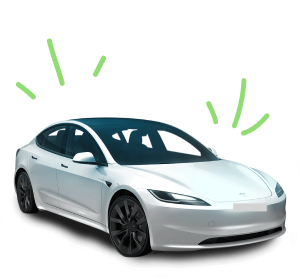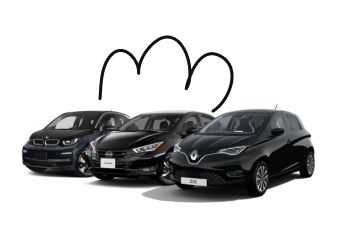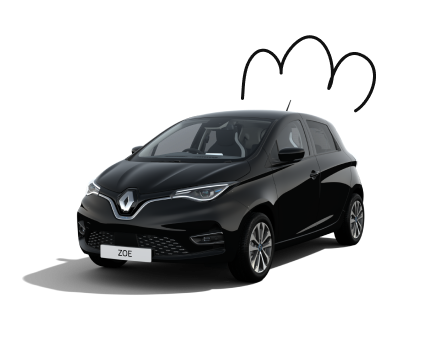The Carmoola car depreciation index, powered by Brego, clearly and colourfully helps make sense of which cars hold their value the best —and those that might have dropped like a stone.
Make and models

Using a benchmark of 36,000 miles / 3 years we found the models and makes that hold their value the best and those that struggled to keep theirs after rolling off the forecourt.
Top 10 cars retaining their value
 i10
Hyundai
i10
Hyundai
.png) Yaris Cross
Toyota
Yaris Cross
Toyota
.png) Macan
Porsche
Macan
Porsche
.png) Jazz
Honda
Jazz
Honda
.png) Picanto
Kia
Picanto
Kia
.png) Aygo
Toyota
Aygo
Toyota
.png) Discovery
Land Rover
Discovery
Land Rover
.png) Sandero
Dacia
Sandero
Dacia
 X7
BMW
X7
BMW
.png) Tiguan
Volkswagen
Tiguan
Volkswagen
Bottom 10 cars retaining their value
.png) Zoe
Renault
Zoe
Renault
.png) Leaf
Nissan
Leaf
Nissan
.png) I-Pace
Jaguar
I-Pace
Jaguar
 E-Tron
Audi
E-Tron
Audi
 i3
BMW
i3
BMW
.png) EQC
Mercedes-Benz
EQC
Mercedes-Benz
.png) ID.3
Volkswagen
ID.3
Volkswagen
.png) E-Niro
Kia
E-Niro
Kia
.png) Outlander
Mitsubishi
Outlander
Mitsubishi

Hyundai i10
The humble hatchback version of the Hyundai i10 topped our list of cars retaining their value with it losing only 18.5% of its value over this period.
Top 5 makes retaining their value
.png) Porsche
Porsche
.png) Mini
Mini
.png) Honda
Honda
.png) Dacia
Dacia
.png) Toyota
Toyota
Bottom 5 makes retaining their value
.png) Polestar
Polestar
.png) Mitsubishi
Mitsubishi
.png) Tesla
Tesla
.png) Jeep
Jeep

Porsche perfection
Porsche owners will have another reason to be smug with their cherished German performance brand being a financially prudent choice, retaining 24.7% of their value.
Dismal DS
Sacré Bleu! French newcomers DS are seemingly struggling to build a brand that’s valued as DS cars see their value drop by over half during the first few years of ownership.

Zilch for Zoe
Renault’s trailblazing Zoe that introduced millions to electric car ownership has suffered a shocking decline in value over this period, retaining under a third of its original value.
Fuel type 
Are ‘Dirty Diesels’ still as desirable as ever or has modern technology shifted the market towards cars that are cheaper to run and better for the planet?
Depreciation of car value by fuel type
-
 Petrol
Petrol -
 Diesel
Diesel -
 Electric
Electric -
 Plug-in Hybrid
Plug-in Hybrid -
 Hybrid
Hybrid
Electric shock
Electric vehicles take the podium spot for rapid depreciation, with them losing 53% of their value on average over the first three years. Hybrid vehicles show remarkable resilience and desirability with their value dropping by a mere 26% over the same timeframe.

Car colour 
Will choosing a traditional car colour help preserve some of its value or does risking a more jazzy finish help it stand out from the crowd?
Depreciation of car value by colour
- Green
- White
- Silver
- Blue
- Black
- Red
- Brown
- Yellow
- Grey
- Multi
- Purple
- Orange

Back to black
Traditional colours like black, grey, and silver see the steepest drop in value over ten years, with black cars holding only 33% of its original worth by year ten. This trend suggests that these common colours, while popular initially, may not stand out as much in the resale market.

Orange appeal
Vibrant colours like orange, purple, and yellow retain more of their value over the years. By year ten, orange cars hold onto 38% of their initial value, while green and red maintain 38% and 36%, respectively. These vibrant shades seem to add some longevity to resale appeal, making them slower to depreciate.
Body type 
Does a family-friendly MPV keep its value better than a more dated saloon or estate car body type?
Depreciation of car value by body type
-
 Hatchback
Hatchback
-
 Small SUV / Estate
Small SUV / Estate
-
 Saloon
Saloon
-
 Large SUV / 4x4
Large SUV / 4x4
-
 Coupe
Coupe
-
 Sports
Sports
-
 MPV
MPV
Most depreciation
proof car
Orange Hyundai i10

Least depreciation
proof car
Black Renault Zoe

Want to find out more?
What is car depreciation and how does it work?
In a nutshell, depreciation is how much value a car loses over time. It’s the difference between a car’s value when it’s...
What are the best first cars?
Not sure which car to buy as a first time car owner? Let us help choose a safe, reliable, and affordable option...
Should I buy an electric car?
You likely have questions: how far can an electric car go? Is it really affordable in the long run? And, most importantly, is an EV right...
FAQs about our car finance calculator
Check below for the answers to some of our most frequently asked questions, related to our Hire Purchase car finance calculator. Got more questions? Check out our FAQs page 👍
How does the car finance calculator work?
How does the car finance calculator work?
Our calculator uses a number of variables to work out your result including the amount you’d like to spend on your car, the length of the agreement and the APR applied to the car finance. It uses these figures to help illustrate an example of what monthly repayments on this loan example might be.
How are interest rates calculated?
How are interest rates calculated?
Each lender has specific criteria that looks at your individual financial circumstances and calculates the interest rate based on these details. Car finance rates usually range between 6% and 30% APR. Car loan rates are subject to change
What is a good APR for car finance?
What is a good APR for car finance?
Car finance lenders determine the APR they can offer you, based on your individual credit profile. A good APR for one person, may be a terrible APR for another! To find out what APR you would get, why not answer a few quick questions on Carmoola? We only run a soft credit search when you do this, so there's no impact on your credit score just to find out.
Does paying a deposit make a difference to my monthly payments?
Does paying a deposit make a difference to my monthly payments?
Yes! Here's an example to help you understand how it works. Let's say you're buying a car that costs £10,000. Some lenders such as Carmoola will be able to help you borrow the whole £10,000 if you want to. However, if you decide to add a small deposit, let's say £2,000, then you'd only need to borrow £8,000 to buy the car. Borrowing less, means your monthly payments will be less, and you'll pay less interest overall.
Are interest rates fixed?
Are interest rates fixed?
When you take out a Hire Purchase car finance agreement, your APR is set at the beginning and is fixed throughout the term you choose.

.webp?width=832&height=592&name=customer-support%20(1).webp)










.webp?width=400&height=285&name=online-shoppers-with-dog%20(1).webp)


.jpg?width=500&height=356&name=Vintage%20car%20going%20to%20an%20old%20town-1%20(1).jpg)



.webp?width=400&height=285&name=online-shoppers-with-dog%20(1).webp)

